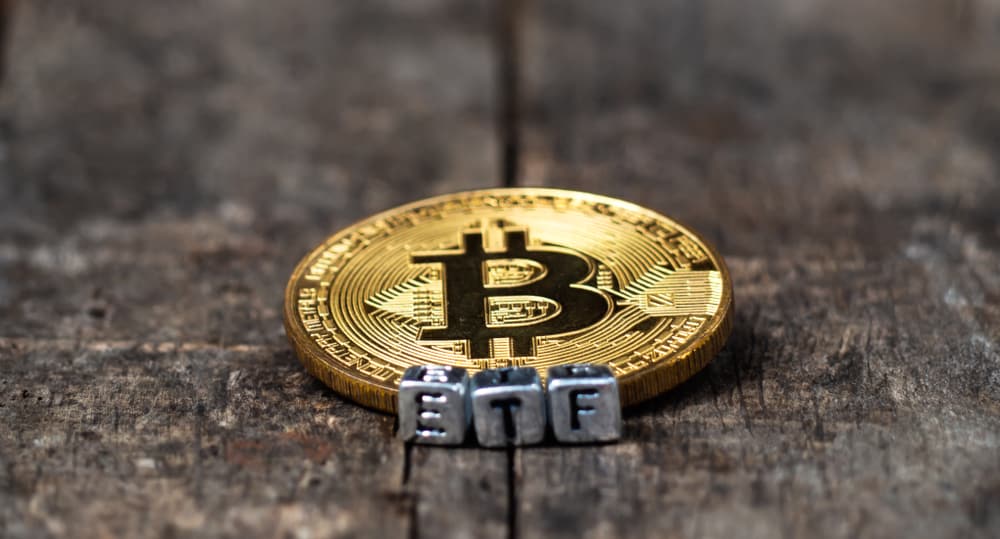Crypto Expert PlanB Moves Entire Bitcoin Holdings to ETFs, Sparking Debate
16.02.2025 12:00 2 min. read Alexander Stefanov
Well-known Bitcoin analyst PlanB has taken a significant step by transferring all his holdings from self-custody into spot Bitcoin ETFs, aiming to simplify asset management.
The crypto expert acknowledged that this move distances him from the maximalist philosophy, as he now treats Bitcoin more like traditional investments such as stocks and bonds.
One of the main reasons for this decision, according to PlanB, is the convenience of not having to manage private keys. He expressed relief at avoiding the risks associated with self-custody, including theft and hacking. This concern is particularly relevant given that crypto-related hacks surged by 40% in 2024, with attackers stealing over $2.3 billion, according to on-chain security firm Cyvers.
While Bitcoin purists argue that holding private keys is essential to financial sovereignty, PlanB believes ETFs are a logical next step for mainstream adoption. He even questioned whether buying shares in a Bitcoin-focused company like MicroStrategy would be viewed any differently. His remarks sparked debate among his 2 million followers, with some questioning whether the transfer could trigger a taxable event.
Addressing tax concerns, PlanB clarified that in his home country, the Netherlands, capital gains taxes do not apply to realized profits. Instead, residents pay a wealth tax based on an assumed annual return. Under this system, he explained, the government estimates a 6% return on net wealth and applies a 30% tax, meaning individuals pay approximately 2% of their total net worth each year.
-
1
Bitcoin ETFs Top $50 Billion in Inflows, Marking Institutional Breakthrough
10.07.2025 11:00 2 min. read -
2
Bitcoin Liquidity Hits Multi-Year Low: CryptoQuant Flags Bullish Setup
09.07.2025 20:00 2 min. read -
3
Bitcoin Shouldn’t Be Taxed, Says Fund Manager
07.07.2025 9:00 2 min. read -
4
Bitcoin Enters new Discovery Phase as Profit-Taking Metrics rise and outflows dominate
06.07.2025 8:00 2 min. read -
5
Altcoins Gain Momentum as Bitcoin Dominance Drops to 61.6%
17.07.2025 15:30 2 min. read
Elon Musk’s SpaceX Moves $150M in Bitcoin
SpaceX has moved 1,308 BTC—worth roughly $150 million—to a new wallet address, marking its first on-chain activity in more than three years.
Here’s When the Bitcoin Cycle May Peak, Based on Past bull Markets
According to a new chart shared by Bitcoin Magazine Pro, the current Bitcoin market cycle may be entering its final stretch—with fewer than 100 days remaining before a potential market top.
Bitcoin Price Prediction: $130K in Sight After ‘Crypto Week’ Boost
Bitcoin (BTC) is once again hovering near its all-time high today as trading volumes have jumped by 13% in the past 24 hours upon breaking the $119,000 barrier, favoring a bullish Bitcoin price prediction. The top crypto has booked gains of 16% in the past 30 days and reached a new record at $123,091 earlier […]
Support Test or Breakout Ahead? Bitcoin Hovers at Key Decision Zone
Bitcoin is consolidating around $119,000 after last week’s all-time high above $123,000.
-
1
Bitcoin ETFs Top $50 Billion in Inflows, Marking Institutional Breakthrough
10.07.2025 11:00 2 min. read -
2
Bitcoin Liquidity Hits Multi-Year Low: CryptoQuant Flags Bullish Setup
09.07.2025 20:00 2 min. read -
3
Bitcoin Shouldn’t Be Taxed, Says Fund Manager
07.07.2025 9:00 2 min. read -
4
Bitcoin Enters new Discovery Phase as Profit-Taking Metrics rise and outflows dominate
06.07.2025 8:00 2 min. read -
5
Altcoins Gain Momentum as Bitcoin Dominance Drops to 61.6%
17.07.2025 15:30 2 min. read


